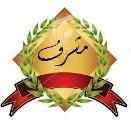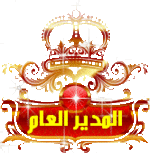Main Pillars
1. Shahadah
The first pillar of Islam is that a Muslim believe and declare his faith by saying the Shahadah (lit. 'witness'), also known as the Kalimah:
La ilaha ila Allah; Muhammadur-rasul Allah. 'There is no god but Allah; Muhammad is the Messenger of Allah.'
This declaration contains two parts. The first part refers to God Almighty, the Creator of everything, the Lord of the Worlds; the second part refers to the Messenger, Muhammad (pbuh) a prophet and a human being, who received the revelation through the Archangel Gabriel, and taught it to mankind.
By sincerely uttering the Shahadah the Muslim acknowledges Allah as the sole Creator of all, and the Supreme Authority over everything and everyone in the universe. Consequently the Muslim closes his/her heart and mind to loyalty, devotion and obedience to, trust in, reliance on, and worship of anything or anyone other than Allah. This rejection is not confined merely to pagan gods and goddesses of wood and stone and created by human hands and imaginations; this rejection must extend to all other conceptions, superstitions, ideologies, ways of life, and authority figures that claim supreme devotion, loyalty, trust, love, obedience or worship. This entails, for example, the rejection of belief in such common things as astrology, palm reading, good luck charms, fortune-telling and psychic readings, in addition to praying at shrines or graves of "saints", asking the dead souls to intercede for them with Allah. There are no intercessors in Islam, nor any cl**** of clergy as such; a Muslim prays directly and exclusively to Allah.
Belief in the prophet hood of Muhammad (pbuh) entails belief in the guidance brought by him and contained in his Sunnah (traditions of his sayings and actions), and demands of the Muslim the intention to follow his guidance faithfully. Muhammad (pbuh) was also a human being, a man with feelings and emotions, who ate, drank and slept, and was born and died, like other men. He had a pure and upright nature, extraordinary righteousness, and an unwavering faith in Allah and commitment to Islam, but he was not divine. Muslims do not pray to him, not even as an intercessor, and Muslims abhor the terms "Mohamedan" and "Mohamedanism".
2. Salah (Prayer)
Prayer (Salah), in the sense of worship, is the second pillar of Islam. Prayer is obligatory and must be performed five times a day. These five times are dawn (Fajr), immediately after noon (Dhuhr), mid-afternoon ('Asr), sunset (Maghrib), and early night (Isha'). Ritual cleanliness and ablution are required before prayer, as are clean clothes and location, and the removal of shoes. One may pray individually or communally, at home, outside, virtually any clean place, as well as in a mosque, though the latter is preferred. Special is the Friday noon prayer, called Jum'ah. It, too, is obligatory and is to be done in a mosque, in congregation. It is accompanied by a sermon (Khutbah), and it replaces the normal Dhuhr prayer.
There is no hierarchical clerical authority in Islam, no priests or ministers. Prayers are led by any learned person who knows the Qur'an and is chosen by the congregation. He (or she, if the congregation is all women) is called the imam. There is also no minimum number of congregates required to hold communal prayers. Prayer consists of verses from the Qur'an and other prayers, accompanied by various bodily postures - standing, bowing, prostrating and sitting. They are said in Arabic, the language of the revelation, though personal supplications (Du'ah) can be offered in one's own language. Worshippers face the Qiblah, the direction of the Ka'bah in the city of Makkah.
The significance of prayer lies in one's maintaining a continuous link to God five times a day, which helps the worshipper avoid misdeeds if he/she performs the prayers sincerely. In addition it promotes discipline, God-consciousness and placing one's trust in Allah alone, and the importance of striving for the Hereafter. When performed in congregation it also provides a strong sense of community, equality and brotherhood/sisterhood.
3. Sawm (Fasting)
The fourth pillar of Islam is fasting. Allah prescribes daily fasting for all able, adult Muslims during the whole of the month of Ramadan, the ninth month of the lunar calendar, beginning with the sighting of the new moon. Exempted from the fast are the very old and the insane. On the physical side, fasting is from first light of dawn until sundown, abstaining from food, drink, and ****ual relations. On the moral, behavioral side, one must abstain from lying, malicious gossip, quarreling and trivial nonsense.
Those who are sick, elderly, or on a journey, and women who are menstruating, pregnant, or nursing are permitted to break the fast, but must make up an equal number of days later in the year. If physically unable to do so, they must feed a needy person for each day missed. Children begin to fast (and to observe the prayers) from puberty, although many start earlier.
Although fasting is beneficial to the health, it is regarded principally as a method of self-purification. By cutting oneself off from worldly pleasures and comforts, even for a short time, the fasting person gains true sympathy for those who go hungry regularly, and achieves growth in his spiritual life, learning discipline, self-restraint, patience and flexibility.
In addition to the fast proper, one is encouraged to read the entire Qur'an. In addition, special prayers, called Tarawih, are held in the mosque every night of the month, during which a whole section of the Qur'an (Juz') is recited, so that by the end of the month the entire Qur'an has been completed. These are done in remembrance of the fact that the revelation of the Qur'an to Prophet Muhammad (pbuh) was begun during Ramadan.
During the last ten days - though the exact day is never known and may not even be the same every year - occurs the Night of Power (Laylat al-Qadr). To spend that night in worship is equivalent to a thousand months of worship, i.e. Allah's reward for it is very great.
On the first day of the following month, after another new moon has been sighted, a special celebration is made, called 'Id al-Fitr. A quantity of staple food is donated to the poor (Zakat al-Fitr), everyone has bathed and put on their best, preferably new, clothes, and communal prayers are held in the early morning, followed by feasting and visiting relatives and friends.
There are other fast days throughout the year. Muslims are encouraged to fast six days in Shawwal, the month following Ramadan, Mondays and Thursdays, and the ninth and tenth, or tenth and eleventh of Muharram, the first month of the year. The tenth day, called Ashurah, is also a fast day for the Jews (Yom Kippur), and Allah commanded the Muslims to fast two days to distinguish themselves from the People of the Book.
While fasting per se is encouraged, constant fasting, as well as monasticism, celibacy, and otherwise retreating from the real world, are condemned in Islam. Fasting on the two festival days, 'Id al-Fitr and 'Id al-Adha, the feast of the Hajj, is strictly forbidden.
4. Zakah
The third pillar of Islam is the alms-tax (Zakah). It is a tax on wealth, payable on various categories of property, notably savings and investments, produce, inventory of goods, salable crops and cattle, and precious ****ls, and is to be used for the various categories of distribution specified by Islamic law. It is also an act of purification through **** what one has with others.
The rationale behind this is that Muslims believe that everything belongs to God, and wealth is held by man as a trust. This trust must be discharged, moreover, as instructed by God, as that portion of our wealth legally belongs to other people and must be given to them. If we refuse and hoard this wealth, it is considered impure and unclean. If, for example one were to use that wealth for charity or to finance one's pilgrimage to Makkah, those acts would also be impure, invalid, and of course unrewarded. Allah says:
"Of their wealth, take alms so you may purify and sanctify them." [9:103]
The word Zakah means purification and growth. Our possessions are purified by setting aside that portion of it for those in need. Each Muslim calculates his or her own Zakah individually.
For most purposes this involves the payment each year of 2.5% of one's capital, provided that this capital reaches a certain minimum amount that which is not consumed by its owner. A generous person can pay more than this amount, though it is treated and rewarded as voluntary charity (Sadaqah). This amount of money is provided to bridge the gap between the rich and the poor, and can be used in many useful projects for the welfare of the community.
Historically the pillar of Zakah became mandatory on Muslims form the second year after the Hijrah, 622 C.E. It is mentioned more than thirty times in the Qur'an, usually in the same breath as Salah. So important is this pillar that one is not considered a part of the Islamic brotherhood if one ignores this obligation.
5. Hajj
The fifth pillar of Islam is to make a pilgrimage (Hajj) to Makkah, in Saudi Arabia, at least once in one's lifetime. This pillar is obligatory for every Muslim, male or female, provided that he/she is physically and financially able to do so. Prerequisites for performing the Hajj are to be a Muslim, to be free, to be an adult or mature enough, to be of sound mind, and to have the ability to afford the journey and maintain one's dependents back home for the duration. The reward for the Hajj is nothing less than Paradise.
The Hajj is the ultimate form of worship, as it involves the spirit of all the other rituals and demands of the believer great sacrifice. On this unique occasion, nearly two million Muslims from all over the globe meet one another in a given year. Regardless of the season, pilgrims wear special clothes (Ihram) - two, very simple, unsewn white garments - which strips away all distinctions of wealth, status, cl**** and culture; all stand together and equal before Allah (God).
The rites of Hajj, which go back to the time of Prophet Abraham who built the Ka'bah, are observed over five or six days, beginning on the eighth day of the last month of the year, named Dhul-Hijjah (pilgrimage). These rites include circumambulating the Ka'bah (Tawwaf), and going between the mountains of Safa and Marwah, as Hajjar (Abraham's wife) did during her search for water for her son Isma'il. Then the pilgrims stand together on the wide plain of Arafah and join in prayers for God's forgiveness, in what is often thought of as a preview of the Last Judgment. The pilgrims also cast stones at a stone pillar which represents Satan. The pilgrimage ends with a festival, called 'Id al-Adha, which is celebrated with prayers, the sacrifice of an animal, and the exchange of greetings and gifts in Muslim communities everywhere.












